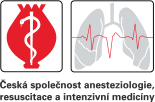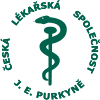Anest. intenziv. Med. 2017;28(3):168-175
Practical application of the results of clinical trialsIntesive Care Medicine - Special Article
- 1 Klinika anesteziologie, resuscitace a intenzivní medicíny, Fakultní nemocnice Ostrava
- 2 Katedra intenzivní medicíny, urgentní medicíny a forenzních oborů, Lékařská fakulta, Ostravská univerzita
Intensive Care Medicine is a field in which the outcome depends on many factors. Clinical trials are required to assess the impact of various interventions on outcome. They form the fundamentals of evidence-based medicine but knowing their limitations is necessary for their proper application in clinical practice. Personalized medicine is defined as clinical management based on evidence-based medicine individually tailored to each patient and their response to previous interventions.
Keywords: clinical trials; evidence based medicine; personalized medicine
Received: January 19, 2017; Accepted: February 3, 2017; Published: June 1, 2017 Show citation
References
- Milbrandt EB, Kersten A, Rahim MT, et al. Growth of intensive care unit resource use and its estimated cost in Medicare. Crit Care Med 2008;36:2504-2510.
 Go to original source...
Go to original source...  Go to PubMed...
Go to PubMed... - Vincent JL, Marshall JC, Namendys-Silva SA, et al. Assessment of the worldwide burden of critical illness: the intensive care over nations (ICON) audit. Lancet Respir Med 2014;2:380-386.
 Go to original source...
Go to original source...  Go to PubMed...
Go to PubMed... - Vincent JL, Hall JB, Slutsky AS. Ten big mistakes in intensive care medicine. Intensive Care Med 2015;41:505-507.
 Go to original source...
Go to original source...  Go to PubMed...
Go to PubMed... - Delaney AP, Dan A, McCaffrey J, et al. The role of albumin as a resuscitation fluid for patients with sepsis: a systematic review and meta-analysis. Crit Care Med 2011;39:386-391.
 Go to original source...
Go to original source...  Go to PubMed...
Go to PubMed... - Xu JY, Chen QH, Xie JF, et al. Comparison of the effects of albumin and crystalloid on mortality in adult patients with severe sepsis and septic shock: a meta-analysis of randomized clinical trials. Crit Care 2014;18:702.
 Go to original source...
Go to original source...  Go to PubMed...
Go to PubMed... - Jiang L, Jiang S, Zhang M, et al. Albumin versus other fluids for fluid resuscitation in patients with sepsis: a meta-analysis. nPLoS One 2014;9:e114666.
 Go to original source...
Go to original source...  Go to PubMed...
Go to PubMed... - Patel A, Laffan MA, Waheed U, et al. Randomised trials of human albumin for adults with sepsis: systematic review and meta-analysis with trial sequential analysis of all-cause mortality. BMJ 2014;349:g4561.
 Go to original source...
Go to original source...  Go to PubMed...
Go to PubMed... - Moreno R, Rhodes A. Evidence should not be viewed in isolation. Crit Care Med 2010;38:S528-33.
 Go to original source...
Go to original source...  Go to PubMed...
Go to PubMed... - McAuley DF, O'kane C, Griffiths MJ. A stepwise approach to justify phase III randomized clinical trials and enhance the likelihood of a positive result. Crit Care Med 2010;38:S523-527.
 Go to original source...
Go to original source...  Go to PubMed...
Go to PubMed... - Gattinoni L, Tonetti T, Quintel M. Improved survival in critically ill patients: are large RCTs more useful than personalized medicine? We are not sure. Intensive Care Med 2016;42:1781-1783.
 Go to original source...
Go to original source...  Go to PubMed...
Go to PubMed... - Vincent JL. We should abandon randomized controlled trials in the intensive care unit. Crit Care Med 2010;38:S534-538.
 Go to original source...
Go to original source...  Go to PubMed...
Go to PubMed... - Vincent JL, Creteur J. Paradigm shifts in critical care medicine: the progress we have made. Crit Care 2015;19:S10.
 Go to original source...
Go to original source...  Go to PubMed...
Go to PubMed... - Vincent JL. Give your patient a fast hug (at least) once a day. Crit Care Med 2005;33:1225-1229.
 Go to original source...
Go to original source...  Go to PubMed...
Go to PubMed... - Vincent JL, Bernard GR, Beale R, et al. Drotrecogin alfa (activated) treatment in severe sepsis from the global open-label trial ENHANCE: further evidence for survival and safety and implications for early treatment. Crit Care Med 2005;33:2266-2277.
 Go to original source...
Go to original source...  Go to PubMed...
Go to PubMed... - Perner A, Haase N, Guttormsen AB, et al. Hydroxyethyl starch 130/0.42 versus Ringer's acetate in severe sepsis. N Engl J Med 2012;367:124-134.
 Go to original source...
Go to original source...  Go to PubMed...
Go to PubMed... - Hjortrup PB, Haase N, Wetterslev J, et al. Gone fishing in a fluid trial. Crit Care Resusc 2016;18:55-58.
 Go to original source...
Go to original source...  Go to PubMed...
Go to PubMed... - Ridgeon EE, Young PJ, Bellomo R, et al. The Fragility Index in Multicenter Randomized Controlled Critical Care Trials. Crit Care Med 2016;44:1278-1284.
 Go to original source...
Go to original source...  Go to PubMed...
Go to PubMed... - Marik PE. Evidence-Based Critical Care. Spinger 2015.
 Go to original source...
Go to original source... - Macias WL, Vallet B, Bernard GR, et al. Sources of variability on the estimate of treatment effect in the PROWESS trial: implications for the design and conduct of future studies in severe sepsis. Crit Care Med 2004;32:2385-2391.
 Go to original source...
Go to original source...  Go to PubMed...
Go to PubMed... - Perner A, Myburgh J. Ten 'short-lived' beliefs in intensive care medicine. Intensive Care Med 2015;41:1703-1706.
 Go to original source...
Go to original source...  Go to PubMed...
Go to PubMed... - Afshari A, Brok J, Møller AM, et al. Inhaled nitric oxide for acute respiratory distress syndrome (ARDS) and acute lung injury in children and adults. Cochrane Database Syst Rev 2010; Jul 7.
 Go to original source...
Go to original source...  Go to PubMed...
Go to PubMed... - Marhong JD, Munshi L, Detsky M, et al. Mechanical ventilation during extracorporeal life support (ECLS): a systematic review. Intensive Care Med 2015;41:994-1003.
 Go to original source...
Go to original source...  Go to PubMed...
Go to PubMed... - Rivers E, Nguyen B, Havstad S, et al. Early goal-directed therapy in the treatment of severe sepsis and septic shock. N Engl J Med 2001;345:1368-1377.
 Go to original source...
Go to original source...  Go to PubMed...
Go to PubMed... - Peake SL, Delaney A, Bailey M, et al. Goal-directed resuscitation for patients with early septic shock. N Engl J Med 2014;371:1496-1506.
 Go to original source...
Go to original source...  Go to PubMed...
Go to PubMed... - Mouncey PR, Osborn TM, Power GS, et al. Protocolised Management In Sepsis (ProMISe): a multicentre randomised controlled trial of the clinical effectiveness and cost-effectiveness of early, goal-directed, protocolised resuscitation for emerging septic shock. Health Technol Assess 2015; 19:i-xxv,1-150.
 Go to original source...
Go to original source...  Go to PubMed...
Go to PubMed... - Yealy DM, Kellum JA, Huang DT, et al. A randomized trial of protocol-based care for early septic shock. ProCESS Investigators. N Engl J Med 2014;370:1683-1693.
 Go to original source...
Go to original source... - Pisano A, Landoni G, Lomivorotov V, et al. Worldwide Opinion on Multicenter Randomized Interventions Showing Mortality Reduction in Critically Ill Patients: A Democracy-Based Medicine Approach. J Cardiothorac Vasc Anesth 2016;30:1386-1395.
 Go to original source...
Go to original source...  Go to PubMed...
Go to PubMed... - Sprung CL, Annane D, Keh D, et al. N Engl J Med. Hydrocortisone therapy for patients with septic shock 2008;358:111-124.
 Go to original source...
Go to original source... - Brunkhorst FM, Engel C, Bloos F, et al. Intensive insulin therapy and pentastarch resuscitation in severe sepsis. N Engl J Med 2008;358:125-139.
 Go to original source...
Go to original source... - Finfer S, Bellomo R, Boyce N, et al. A comparison of albumin and saline for fluid resuscitation in the intensive care unit. N Engl J Med 2004;350:2247-2256.
 Go to original source...
Go to original source...  Go to PubMed...
Go to PubMed... - Pettilä V, Hjortrup PB, Jakob SM, et al. Control groups in recent septic shock trials: a systematic review. Intensive Care Med 2016;42:1912-1921.
 Go to original source...
Go to original source...  Go to PubMed...
Go to PubMed... - Ospina-Tascón GA, Büchele GL, Vincent JL. Multicenter, randomized, controlled trials evaluating mortality in intensive care: doomed to fail? Crit Care Med 2008;36:1311-1322.
 Go to original source...
Go to original source...  Go to PubMed...
Go to PubMed... - Singer M. Advancing critical care: time to kiss the right frog. Crit Care 2013;17 Suppl 1:S3.
 Go to original source...
Go to original source...  Go to PubMed...
Go to PubMed...





